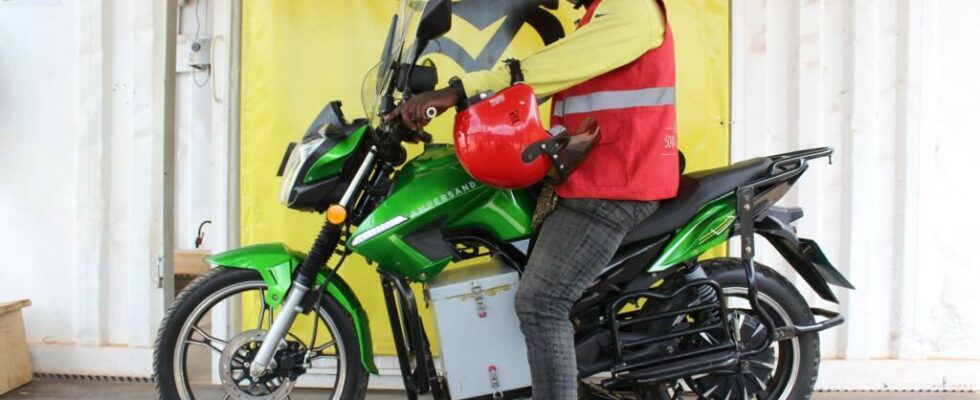In Rwanda, the government recently announced the cessation of the registration, in the capital Kigali, of new motorized motorcycle taxis from January 2025. A decision intended to promote electric mobility and reduce air pollution in the metropolis.
3 mins
With our correspondent in Kigali, Lucie Mouillaud
A simple click, a few seconds and Idrissa Harerimana suddenly removes the battery from his electric motorcycle in front of a replacement station.
“I’m coming to change the battery. It’s very fast. In a minute, it’s over. It’s even faster than filling up with gas at a gas station. “, he said.
When starting, a faint whistle, far from the roar of the engines… Idrissa does not regret his transition to electric last June: “ I switched to electric because the price of gas kept going up. I spent 13,500 Rwandan francs (less than ten dollars) on gasoline per working day. Now I pay 7500 (about 5.5 dollars) for the batteries. The difference is huge. »
From next January, any new motorcycle taxi registered in Kigali must be electric, a historic decision for the country’s half-dozen green mobility companies.
“There are a lot of carbon emissions and we want to reduce them. We contributed with 1,300 electric motorcycles, and with all the players in the country, there are more than 4,000. Electric mobility is always slow to gain acceptance, but with this kind of policy, it becomes easier », underlines Arun Bhandari, director of operations at Rwanda Spiro motorcycles.
Of more than 110,000 registered motorcycles, electric mobility still remains in the minority. The next challenge will be to extend the sector, currently concentrated mainly in the capital and its outskirts, to the rest of the country.
Introduction of electric transport in Africa: slowly but surely
Electric mobility is slowly being introduced on the African continent, in particular for two-wheelers, but also for buses and public transport in certain countries.
Despite obstacles, such as the higher purchase cost compared to gasoline vehicles or even access to a reliable and constant electricity network, certain governments are trying to promote the introduction of this green mobility on their territory.
This is what Yao-Tsoekeo Amedokpo, geographer, research fellow at the City, Mobility and Transport laboratory at the School of Bridges and Roads, contacted by RFI, explains to us: “ This is a very recent dynamic and which is more or less supported by public actors. In countries like Rwanda, we have very strong and very marked support. In other countries, this support is gradually being built. I take the example of Togo and Benin which very recently introduced incentive measures precisely to reduce the costs linked to the importation of these vehicles. Ivory Coast aims to do the same and Senegal is also waking up to electric mobility.”
“There are certain African countries which have begun to draw inspiration from the public policies implemented, particularly in Asia, where we have seen that incentive policies are correlated with conditions where, for example, we will ask a manufacturer to produce all or a certain part of motorcycle accessories locally. And we see this a little in the policies that Rwanda is defining on its threshold », Specifies Yao-Tsoekeo Amedokpo, geographer, research fellow at the City, Mobility and Transport laboratory at the School of Bridges and Roads.
Also readAfrican cities facing the challenge of sustainable transport
